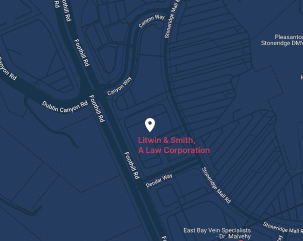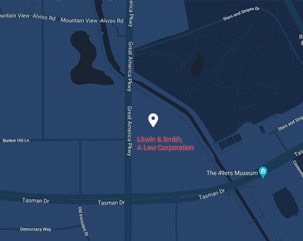Litwin & Smith recommends that you maintain your H-1B. Adjustment of Status EAD cannot be relied upon.
U.S. Citizenship and Immigration Services (USCIS) issued a immigration policy alert on August 19, 2019, stating that USCIS is enhancing its adjudicators’ discretion to grant or deny work permits to foreign nationals paroled into the United States under INA 212(d)(5). This policy change affects many foreign nationals awaiting lawful permanent resident status.
Parole in U.S. immigration law describes various processes to allow entry or permission to remain in the United States to those that do not otherwise qualify for admission. Some parole policies allow a person to leave the United States and return; this is referred to as advance parole. This process is used by Temporary Protected Status (TPS) recipients, adjustment applicants, Deferred Action for Childhood Arrivals (DACA) recipients, and others to travel outside the United States and be permitted to return to resume their applications or status, even if they are without other documents permitting their admission.
USCIS’ new policy memo emphasizes the use of discretion when determining whether to grant employment authorization for foreign nationals paroled into the United States in keeping with existing policies. USCIS, U.S. Immigration and Customs Enforcement (ICE), and CBP officers can decide, as a matter of discretion, whether to grant a foreign national parole for urgent humanitarian reasons or based on a significant public benefit. The fact that USCIS, ICE, or CBP grants parole does not mean a foreign national is automatically entitled to discretionary employment authorization. The grant of parole is a separate determination from the grant of employment authorization, even though both adjudications require an officer to exercise discretion.
The new policy provides a list of positive and negative factors that an officer may consider when balancing the totality of the circumstances and determining whether an applicant warrants a favorable exercise of discretion. In deciding whether a parolee should be granted employment authorization, USCIS makes a case-by-case determination considering all relevant information. The ultimate decision to grant discretionary work authorization for a parolee depends on whether, based on the facts and circumstances of each individual case, USCIS finds that the positive factors outweigh any negative factors that may be present, and that a favorable exercise of discretion is warranted. The denial of employment authorization is not subject to judicial review.
Favorable Factors
· The emergent nature of the event or circumstances that necessitated the foreign national’s parole that is dependent on work authorization
· The length of time authorized for parole (for example, over 1 year) and conditions placed on parole
· If the foreign national is the primary caregiver or source of financial support for a spouse, parent, or child with significant and debilitating health conditions
· Any prior time periods the foreign national has been lawfully in the United States
· If the foreign national is assisting (or will assist) the federal government in a criminal investigation or prosecution of significant duration
· If the foreign national is the spouse, parent, or child of a U.S. citizen; or the foreign national is a member of the U.S. Armed Forces or in the Selected Reserve of the Ready Reserve and is currently serving on active duty, or, if discharged, served honorably
Unfavorable Factors
· Any criminal history, especially serious crimes or felonies
· The length of time authorized for parole (for example, less than 1 year)
· If the foreign national violated the terms of his or her parole
· The nature and severity of any prior violations of the immigration laws, including illegal entries and unauthorized employment
· The length of time the foreign national was or has been in the United States without lawful presence, with shorter periods of time being more unfavorable
· Grounds of inadmissibility or removal that may apply to the parolee that may be considered unfavorable factors
· Fraud or material misrepresentations to obtain an immigration benefit
· Lying or making a material misrepresentation to any immigration or consular officer or employee while such officer or employee is performing his or her official duties under the law
· Whether the foreign national has a final order of removal or is subject to reinstatement of such an order
· Whether the foreign national is a national security or public safety risk as evidenced by arrests and criminal convictions
Foreign Nationals Seeking Parole Should Consult with an Immigration Attorney
Contact an experienced immigration law attorney at Litwin & Smith. Led by a certified specialist in immigration, our team of immigration and naturalization attorneys can assist you and your family with all of your business and personal immigration needs.
We have extensive experience advising business professionals and employers regarding various employment-based visas, counseling clients through labor certification (PERM), and proactively assisting businesses with immigration compliance and enforcement. Some of the business or employment-based visas that we regularly handle include H working visas, L working visas, O visas, and R visas.
The information in this article does not constitute legal advice. The law is constantly changing, and we make no warranty of the accuracy of information.
This answers most of the frequently asked questions which we receive in our office. If after reading this you have questions about immigrating to the United States or any other immigration matters, please call Litwin & Smith and arrange a consultation at either our South San Francisco or Santa Clara office. There is an initial consultation fee for the first half-hour.
https://www.uscis.gov/policy-manual/volume-10-part-b-chapter-2
https://www.uscis.gov/policy-manual/volume-10-part-b-chapter-2

